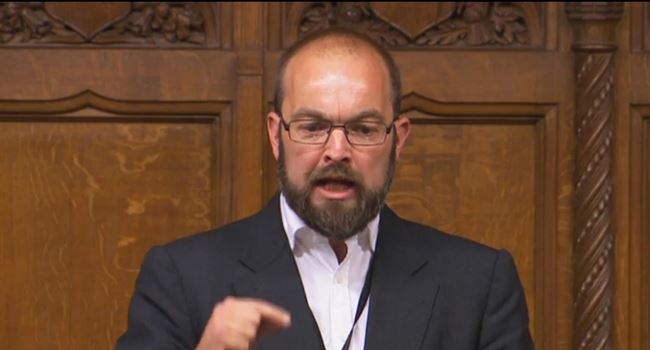Politics
UK minister links insecurity in Nigeria to climate change

The UK Minister for Africa, James Duddridge has postulated that the current insecurity bedevilling Nigeria may be linked to the effects of climate change.
Duddridge who made this assertion via a statement in Abuja on Wednesday stated that the genesis of the current insecurity borders more on lack of arable land and water occasioned by the effects of climate change.
According to him, these issues which are linked to climate change will be elaborated on during the Glasgow Climate Change Conference 2021, tagged COP26.
“The broader point of a lot of these conflicts, whether it is the Fulani in Nigeria or the Sahel, it is about land and it is about resource,” the UK minister opined.
He further stated that “Africa is bearing the brunt of climate change, the shrinking of the Lake Chad, the desertification of potentially arable land, to make sure people have sustainable futures.
“If that land is not there, if that water is not there, if those young men do not have jobs, there would be further instability.”
He said that all the factors which he had listed were all connected but stressed that it was not limited to Africa alone as other countries had their own similar issues which may be labeled differently.
READ ALSO: UK minister resigns over secret trip to Israel, apologises to PM
“You question only Sahel and Chad but these things are all connected up, these issues do not constrain themselves by the borders or country names or the labels we choose to put on countries, these are consistent problems across borders.”
Violence between Nigerian herders and farmers has escalated, killing more than 1,300 people since January 2018.
The conflict has evolved from spontaneous reactions to provocations and now to deadlier planned attacks, particularly in Benue, Plateau, Adamawa, Nasarawa and Taraba states.
This decades-long conflict arose from environmental degradation in the far north and encroachment upon grazing grounds in the Middle Belt: militia attacks; the poor government response to distress calls and failure to punish past perpetrators; and new laws banning open grazing in Benue and Taraba states.
The farmer-herder conflict has become Nigeria’s gravest security challenge, now claiming far more lives than the Boko Haram insurgency. It has displaced hundreds of thousands and sharpened ethnic, regional and religious polarisation. It threatens to become even deadlier and could affect forthcoming elections and undermine national stability.
Join the conversation
Support Ripples Nigeria, hold up solutions journalism
Balanced, fearless journalism driven by data comes at huge financial costs.
As a media platform, we hold leadership accountable and will not trade the right to press freedom and free speech for a piece of cake.
If you like what we do, and are ready to uphold solutions journalism, kindly donate to the Ripples Nigeria cause.
Your support would help to ensure that citizens and institutions continue to have free access to credible and reliable information for societal development.
























